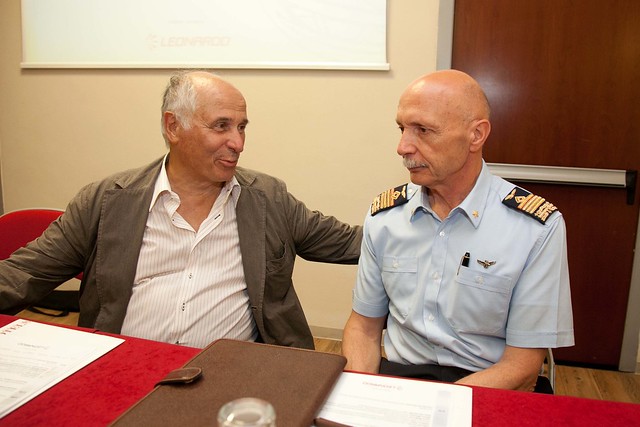I velivoli a pilotaggio remoto
On 26th July 2016, the Istituto Affari Internazionali (IAI) organized a conference to present the IAI volume The Remotely Piloted Aircraft Systems and the European security. Technological and operational challenges realised by Alessandro R. Ungaro and Paola Sartori. As is traditional, the event included both focused discussions on the publication as well as broader contributions, aiming at fostering the debate on major security and defence issues, particularly on the future of the Remotely Piloted Aircraft Systems (RPAS).
“We are still living in prehistory but great development is ahead”. With these words General Vincenzo Camporini, IAI Vice-president, opened and moderated the conference. Relevant institutional representatives took part to the event: General Carlo Magrassi, Secretary General of Defence/National Armaments Director, General Enzo Vecciarelli, Chief of the Italian Air Force, Fabrizio Curcio, Head of Civil Protection Department, and Giovanni Soccodato, Director of Strategy, Markets and Business Development of Leonardo-Finmeccanica. Claudio De Vincenti, Undersecretary to the Presidency of the Council of Ministers, concluded the conference by a written contribution.
The conference addressed the main topics of the research project. Firstly, potential scenarios on the use of those technologies in the security field; secondly, the main aspects and the potential vulnerabilities of the cyber domain – thus highlighting the leading concept of resilience; and finally, considerations on future prospects, in terms of business, technological development and integration in a non-segregated airspace and ATM environment.
Furthermore, it has been highlighted that the lack of funds at European level has negatively influenced the full development of RPAS, thus showing a fragmented approach towards such new technologies. For this reason, Europe should invest more on increasingly autonomous systems. As the IAI volume underlines these kinds of systems could increase their capabilities only with a joint effort in terms research and development, where various stakeholders - institutional or industrial - should play a leading role.
The RPAS is part of the so-called “Internet of Things” (IoT). The pervasive nature of the fifth dimension linked to the presence of such instruments underlines both opportunities and challenges. Considering the security context where threats can steam anywhere, insurance, certifications and privacy are some of the main topics to deal with when it comes to RPAS, in order to secure them before being used in the general aviation system.
All this implies the need to manage the change by defining rules of engagement in different areas, in order to avoid overlaps and strengthen coordination in the use of drones. In this context, the necessity of a holistic, multidisciplinary and multidimensional approach has been put forward. Indeed, despite the numerous potentialities, criticalities do emerge. They are mainly linked to possible interferences to the future airspace management where the concept of air defence, as we know it today, will profoundly change.
To conclude, given the evident cross-border nature of civilian and military field, it has been stressed the importance of such a matter for the government. The panel of technical experts set up by the Presidency of the Council of Ministers in 2015 is a virtuous example able to encourage the development of synergies at national level, thus “systemizing” and incentivizing all those national excellences that Italy is able to guarantee and support.
Topic
Tag
Related content
-
Publication15/07/2016
I velivoli a pilotaggio remoto e la sicurezza europea
leggi tutto -
Ricerca28/06/2016
The Remotely Piloted Aircraft Systems (RPAS) and the European security
leggi tutto



